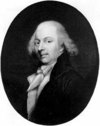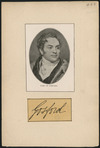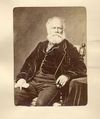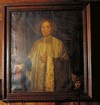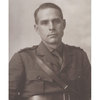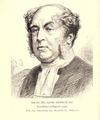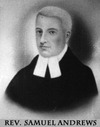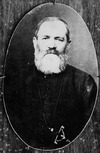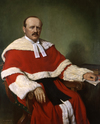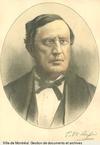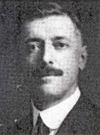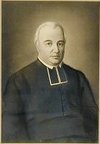recommending that the clergy reserves should be applied to general education and not given solely to the Church of England. However, as the magistrate system began to collapse in 1837 the English party closed
, Adhémar and De Lisle went to Paris at the beginning of 1784 with a view to recruiting priests for the Canadian clergy. In order to concentrate their efforts on the recruiting question, the two delegates had
only exceptions to Ainslie’s general condemnation of the ungrateful Canadians were the “nobles” and the clergy, both royalist, and the militia within the city, whose courage during the repulse of Richard
Upper Canadian Methodists as Yankees in disguise and sought to bring them fully into the Wesleyan orbit. He was strongly critical of their independent stand on the clergy reserves and on political change
obtained them. In 1792, at the time the shock waves from the French revolution were reaching those distant islands, Allain refused to take the oath to the new Civil Constitution of the Clergy, as did
Talbot* of Port Talbot, and with various government officials. His troubles with his neighbours stemmed largely from his failure to build a church on a clergy reserve lot, something he had agreed to do
prestige, political influence, or technical expertise.
Allan was cynical and astute in exploiting the Roman Catholic clergy and French Canadian
on 12 July. In 1685 he took part in the Assembly of the Clergy, and died at Vence on 4 December of that year.
G
functions the law recognized for the theologal, especially the responsibility for teaching theology and Holy Scripture to the clergy and for preaching in the cathedral church. The new theologal’s demands
favour of the abolition of seigneurial tenure and the immediate settlement of the clergy reserves issue while at the same time safeguarding “vested interests.” He considered an elective legislative council
having driven most of the settled clergy away. Alline’s New Light churches were organized around his insistence upon the crisis conversion, and partially reflected his beliefs. Only those who had enjoyed
, involve the home churches directly in the recruitment of chaplains, and ensure a vigorous front-line presence for his clergy founded the major traditions of military chaplaincy in Canada. Even though the
*, dit Latour, prove in eloquent fashion.
Amiot always enjoyed the support of the clergy and it was in part the reason for his success. He initiated
*] to settle Scottish crofters on the plains early in the 19th century, thought they had too long suffered the ministrations of the clergy of the Church of England. After years of dispirited searching
“the peculiar Circumstances of the Times” he had been preaching on the “Duty of Obedience to the higher Powers,” a stand taken by most of his fellow Anglican clergy. Although his lack of sympathy with
question, still unresolved, the Métis and other settlers concluded that they needed a leader to spearhead their protests to the government of Canada. Despite the reservations of the Roman Catholic clergy
Greenway*], and he presided at functions honouring the clergy, sang at the funerals of prominent co-religionists, and represented the Catholic separate schools on the Toronto Board of Education
anyone else to judge political questions for himself. To the Quebec clergy who denounced the Liberal party [see Ignace Bourget*], he
the Montreal Catholic schools. Calling for free and compulsory education, he directly opposed the Montreal clergy, whom he accused of proscribing those wanting to discuss educational concerns. He
accounts, and as he could not replace the missing sum the only solution appeared to be to sue his personal debtors, and in so doing render himself odious, hurt the clergy, and then be forced to leave his




